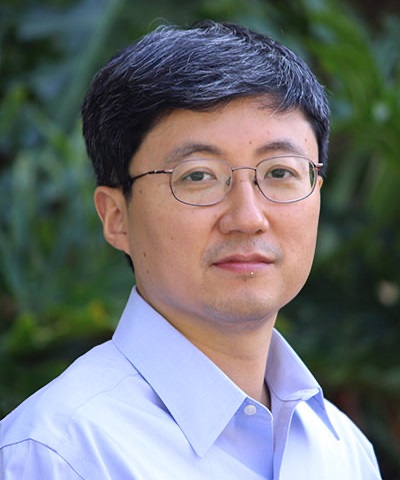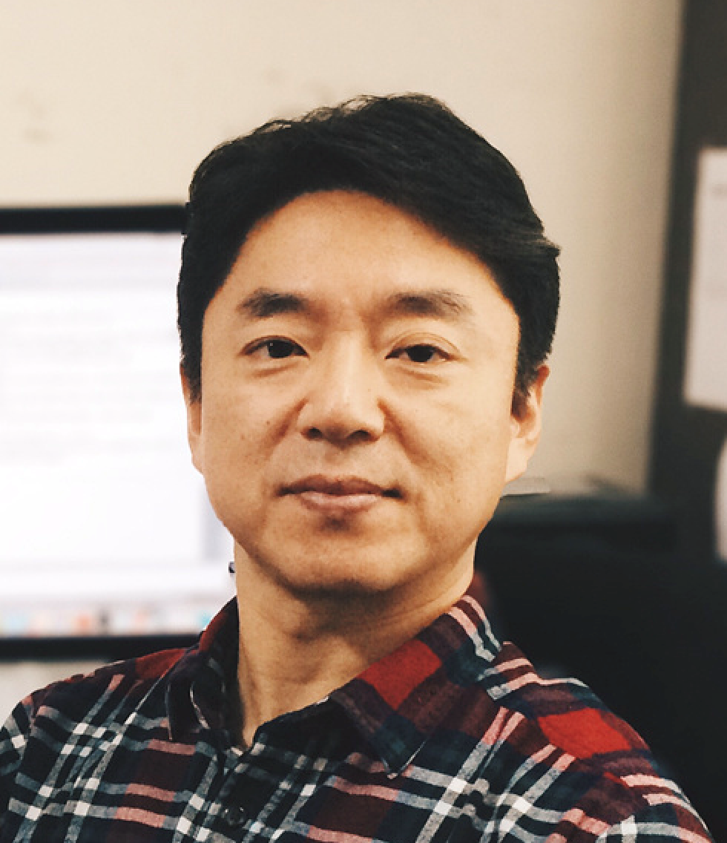IEEE NVMSA 2021 Technical Program
Note: All the times listed below are in UTC+8
|
August 18
Live Keynote 1 (09:00 ~ 10:00 UTC+8)

Title: Computational Storage: Another Over-hyped Fantasy?
Speaker: Tong Zhang, Professor, Rensselaer Polytechnic Institute (RPI)
Abstract: As a hot topic today, computational storage has a beautifully simple rationale: Moving computational tasks closer to where data reside could improve the overall system performance/efficiency. Intuitively, this simple rationale makes a perfect sense and cannot be possibly refuted. However, its large-scale commercial success has remained elusive so far, despite so many awesome research papers and 100s' millions of dollars spent on its R&D. This disappointing status quo warrants doubts and skepticisms: Will it turn out to be an over-hyped fantasy just like many others we have seen over the years? Are there any fatal flaws in this simple idea? Facing these questions, proponents of computational storage must be brutally honest to themselves and humbly search for the (inconvenient) truth, other than conveniently blaming the industry reluctance/laziness on embracing new and disruptive technologies. In this talk, I will share ScaleFlux view on the pitfalls of prior and on-going R&D efforts, and what is the correct (or at least the best) way to commence its commercialization journey. I will also show that there is still a large room for research innovations in this area, despite many papers published over the past 20 years. Finally, although this talk solely focuses on computational storage, the lessons we learned could also help to prevent "in-memory computing" or "computational memory" (another hot topic today) from becoming yet another academic fantasy.
Biography: Tong Zhang is currently a Professor in the Electrical, Computer and Systems Engineering Department at Rensselaer Polytechnic Institute (RPI), NY. In 2002, he received the Ph.D. degree in electrical engineering from the University of Minnesota and joined the faculty of RPI. He has graduated 19 PhD students, and authored/co-authored over 160 papers, with over 5,000 citations and h-index of 40. Among his research accomplishments, he made pioneering contributions to enabling the pervasive use of low-density parity-check (LDPC) code in commercial HDDs/SSDs and establishing the research area of flash memory signal processing. In 2014, he co-founded ScaleFlux (San Jose, CA) to spearhead the commercialization of computational storage drives, and currently serves as its Chief Scientist. He is an IEEE Fellow.
Moderator: Guangyu Sun (Peking University)
Session 1: Best Paper Candidates (10:30 ~ 12:00 UTC+8)
Session Chair: Liang Shi (East China Normal University) (shi.liang.hk[at]gmail.com)
- Approximate Programming Design for Enhancing Energy, Endurance and Performance of Neural Network Training on NVM-based Systems (Paper) (Slides)
Chien-Chung Ho (National Chung Cheng University and National Cheng Kung University), Wei-Chen Wang (Macronix International Co., Ltd.), Te-Hao Hsu, Zhi-Duan Jiang (National Chung Cheng University) and Yung-Chun Li (Macronix International Co., Ltd.) - High Area/Energy Efficiency RRAM CNN Accelerator with Pattern-Pruning-Based Weight Mapping Scheme (Paper) (Slides)
Songming Yu, Lu Zhang, Jingyu Wang, Jinshan Yue, Zhuqing Yuan, Xueqing Li, Huazhong Yang and Yongpan Liu (Tsinghua University) - A Novel Multi-Context Non-Volatile Content-Addressable Memory Cell and Multi-Level Architecture for High Reliability and Density (Paper) (Slides)
Xian Wang, Deming Zhang, Kaili Zhang, Erya Deng, You Wang and Weisheng Zhao (Beihang University)
Session 2: Emerging Memory Technologies (13:30 ~ 15:00 UTC+8)
Session Chair: Mengying Zhao (Shandong University) (zhaomengying[at]email.sdu.edu.cn)
- Mitigating Adversarial Attack for Compute-in-Memory Accelerator Utilizing On-chip Finetune (Paper) (Slides)
Shanshi Huang, Hongwu Jiang and Shimeng Yu (Georgia Institute of Technology) - A Non-volatile Computing-in-Memory ReRAM Macro using Two-bit Current-Mode Sensing Amplifier (Paper) (Slides)
Qiqiao Wu, Wenhao Sun, Junpeng Wang, Xuefei Bai (University of Science and Technology of China), Feng Zhang (Chinese Academy of Sciences), Song Chen and Yi Kang (University of Science and Technology of China) - Exploring Skyrmion Racetrack Memory for High Performance Full-Nonvolatile FTL (Paper) (Slides)
Ya-Hui Yang (National Taipei University of Technology), Yu-Pei Liang (Academia Sinica), Cheng-Hsiang Tseng and Shuo-Han Chen (National Taipei University of Technology)
Session 3: Invited Session (15:30 ~ 17:00 UTC+8)
Session Chair: Keni Qiu (Capital Normal University) (qiukn[at]cnu.edu.cn)
- Field-free spin-orbit torque-induced switching of perpendicular magnetization in a ferrimagnetic layer with a vertical composition gradient, Nature Communications, vol.12, 4555, 2021
Zhenyi Zheng, Yue Zhang, Victor Lopez-Dominguez, Luis Sánchez-Tejerina, Jiacheng Shi, Xueqiang Feng, Lei Chen, Zilu Wang, Zhizhong Zhang, Kun Zhang, Bin Hong, Yong Xu, Youguang Zhang, Mario Carpentieri, Albert Fert, Giovanni Finocchio, Weisheng Zhao, and Pedram Khalili Amiri - MobileSwap: Cross-Device Memory Swapping for Mobile Devices, The 58th Design Automation Conference (DAC’21)
Changlong Li, Liang Shi, and Chun Jason Xue - Write Dependency Disentanglement with HORAE, The 14th USENIX Symposium on Operating Systems Design and Implementation (OSDI’20)
Xiaojian Liao, Youyou Lu, Erci Xu, and Jiwu Shu
August 19
Live Keynote 2 (09:00 ~ 10:00 UTC+8)

Title: On the ordering guarantee in the modern storage stack
Speaker: Youjip Won, Professor, Korea Advanced Institute of Science and Technology (KAIST)
Abstract: In this talk, we will review the ordering guarantee issue in the modern IO stack. Modern IO stack assumes that all IO requests are independent with each other. each of the block device layer, storage controller, writeback cache manager employs its own scheduler to meet the requirement from the application such as maximizing the throughput or minimizing the latency, or QoS guarantee. Modern softwares such as DBMS, key-value engine, mail server and the filesystem require that a set of write requests are made durable with respect to a certain order. This is called ordering guarantee. Existing software stack does not provide separate API’s for guaranteeing the order in which a set of writes are made durable. Instead, we have been using durability guarantee API’s, e.g. fdatasync/fsync to ensure the ordering guarantee. We will examine the reason why the modern IO stack have failed to separate the ordering guarantee from the durability guarantee, how we can separate the ordering guarantee from the durability guarantee in the modern IO stack, and what are the technical challenges in it. Lastly, we will see the possible benefits of providing the separate ordering guarantee in the modern IO stack.
Biography: He is ICT Endowed Chair Professor at School of Electrical Engineering, KAIST. He did his BS and MS in Dept. of Computer Science, Seoul National University, Seoul, Korea in 1990 and 1992, respectively. He received his Ph. D in Computer Science from University of Minnesota in 1997. From 1999 till 2019, he was with Dept. of Computer Science, Hanyang University, Seoul, Korea. He was a dept. head and a director of Center for File and Storage Systems Technology (CFSR) at Hanyang University. He was awarded “Outstanding Researcher Award”, Hanyang University(2016) and “Gaheon Outstanding Research Award” from Korean Institute of Information Scientists and Engineers (KIISE)(2017). Funded by Samsung Electronics, he developed Namsan Filesystem. With Namsan Filesystem, he was awarded “Best Academy-Industry Collaboration Practice in Samsung Electronics” in 2006. Namsan Filesystem was deployed in the commercial TV products. His work on IO stack optimization in Android platform identified the root cause of the IO inefficiencies in the Android smartphones (USENIX ATC 2013, best paper award). His work on IO stack design on the Flash Storage proposes a new way of designing the filesystem, block layer and device formware for the Flash storage (USENIX FAST 2018, best paper award). He is known for his work on the Android IO stack optimization, filesystem and block layer design for SSD and NVRAM. His research interests include Operating System, Distributed System, Storage System and Software support for byte-addressable NVRAM.
Moderator: Ming-Chang Yang (The Chinese University of Hong Kong)
Session 4: Hybrid Memory (10:30 ~ 12:00 UTC+8)
Session Chair: Youyou Lu (Tsinghua University) (luyouyou[at]tsinghua.edu.cn)
- OCTO+: Optimized Checkpointing of B+ Trees for Non-Volatile Main Memory Wear-Leveling (Paper) (Slides)
Christian Hakert, Roland Kühn, Kuan-Hsun Chen, Jian-Jia Chen and Jens Teubner (Technische Universit¨at Dortmund) - Scheduling-Aware Prefetching: Enabling the PCIe SSD to Extend the Global Memory of GPU Device (Paper) (Slides)
Tse-Yuan Wang, Chun-Feng Wu, Che-Wei Tsao (National Taiwan University and Academia Sinica), Yuan-Hao Chang (Academia Sinica) and Tei-Wei Kuo (National Taiwan University and City University of Hong Kong) - HBTree: an Efficient Index Structure Based on Hybrid DRAM-NVM (Paper) (Slides)
Yuanhui Zhou, Taotao Sheng (Huazhong University of Science and Technology and Wuhan National Laboratory for Optoelectronics) and Jiguang Wan (Huazhong University of Science and Technology, Shenzhen Huazhong University of Science and Technology, and Wuhan National Laboratory for Optoelectronics)
Session 5: Persistent Memory (13:30 ~ 15:00 UTC+8)
Session Chair: Xianzhang Chen (Chongqing University) (xzchen[at]cqu.edu.cn)
- PMap: A Non-volatile Lock-free Hash Map with Open Addressing (Paper) (Slides)
Kenneth Lamar, Christina Peterson, Damian Dechev (University of Central Florida), Roger Pearce, Keita Iwabuchi and Peter Pirkelbauer (Lawrence Livermore National Laboratory) - Designing a persistent-memory-native storage engine for SQL database systems (Paper) (Slides)
Shohei Matsuura (Yahoo Japan Corporation) - An Empirical Study of NVM-based File System (Paper) (Slides)
Hongwei Duan, Liang Shi, Qingfeng Zhuge, Edwin Hsing-Mean Sha, Changlong Li and Yujiong Liang (East China Normal University)